The following post is a bit odd, unusually personal. I wrote it on Facebook yesterday, after a long absence from any social media. But now I think it decent enough to present here. It concerns Hilaire Belloc, my book and that which I light a candle to.
Originally from Facebook then:
Lumbering back onto Facebook, after a long, self-enforced absence …
Given all this time away, a little news. First, I will be reinvigorating the blog soon – long-neglected like FB – whilst I struggled with some personal things and also revising my long (and long-overdue) complex book.
I am assured by the publishers that they do want to publish this year, but may be best I don’t say more. I am embarrassed by how long I’ve been promising this book – which I thought was basically finished years ago.
Still, the extended gestation process has been providential, I think. It has both benefitted the book and my soul in that I am now clearer, sharper and far more committed in my radical dissent from secular narratives of ‘progress’ than once I was.
Living in Ireland has also helped. Whilst Ireland and the Irish people warm my heart – these people are like no other people on earth! – Ireland’s fate weighs on me.
The Irish children! The Irish children! …
But, of course, it is not just the Irish children, it is children everywhere caught in the soul-deadening grip of secular-capitalist globalisation.
Globalisation … I confess the word sometimes seems to me like a euphemism for Anglo-Americanisation.
The more I stare at the fact that the last two great empires to dominate the world – British and American – both SPOKE THE SAME LANGUAGE – the more staggering I find it.
There is moreover the extraordinary fact that these two world-conquering empires were both animated by the same religion: Protestant Christianity. This not only favoured capitalism, but, as I argue in my book, paved the way for today’s New Age movement.
Rather than being “universal”, New Age or “holistic” spirituality is above all an Anglo-American movement. Herewith a major theme of the upcoming book.
But the book is about much more: Ireland, France, the ongoing consequences of the soul-deadening secular-materialist revolution …
As indeed all my future work and writing will be – these last will probably be the major themes of the reinvigorated blog, rather than the New Age.
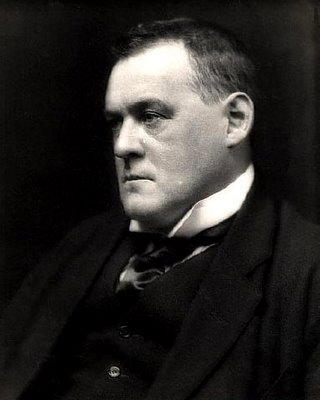
On a final note, I also see, more and more, this work is to do with BELLOC. I devour one book after another by the man – and am ever more astonished by how capacious the man’s mind – and heart – really were.
A lot has been done to conceal Hilaire Belloc by emphasising his admitted faults.
Chesterton lacked some of those faults and his legacy is more digestible and enduring as a result.
But so much of the original inspiration and power behind Chesterton was Belloc. As is often remarked, one can imagine Belloc without Chesterton, but one cannot imagine Chesterton without Belloc – however brilliant and lovely a man Chesterton undoubtedly was.
Indeed, it has even been said (by who, I forget): Belloc invented English Catholicism.
It’s an exaggeration, of course – but not without a grain of truth. English Catholicism was like a corpse, at least – and Belloc had a great deal to do with her resurrection.
At any rate, it’s high-time Belloc’s vision is rescued and the rest of my life will be dedicated to that.
Perhaps it is fitting, then, that I end with a quote from Belloc. For it not only amplifies what I say above about the Anglo-American world, but it also confirms my life transforming years living in Catholic Europe – Ireland, Spain, France.
Still, I regret that I am far, far, far behind Belloc. It’s taken me something like 50 years to really grasp the truth contained in the following:
The more Catholic a country is, the less easily does it accommodate itself to the social arrangement of a proletariat subjected to millionaire monopolists.
Industrial Capitalism is, as a point of historical fact, the product of that spirit which destroyed the Faith in men’s hearts and eradicated it from society — where they could — by the most abominable persecutions.
But, also in point of historical fact, Industrial Capitalism has arisen late in societies of Catholic culture, has not flourished therein, and, what is more, in proportion as the nation is affected by Catholicism, in that proportion did it come tardily to accept the inroads of Industrial Capitalism and in that proportion does it still ill agree with Industrial Capitalism.
That is why the more Catholic districts of Europe have in the past been called ‘backward’; and that is why there is a fiercer class war in the industrial plague spots of Catholic Europe than in the great towns of Protestant Europe.
In France, one of the main reasons why the anti-Catholic minority, especially the anti-Catholic of the Huguenot [French Protestant] type, plays so great a part in the economic control of the country is that he has been the pioneer in introducing the mechanics of Industrial Capitalism.
In Spain, Industrial Capitalism halts and occasions fierce revolts.
It came very late to Italy; it has taken no strong root in Catholic Ireland; its triumphs have been everywhere the triumphs of the Protestant culture — in Prussianised Germany, in Great Britain, in the United States of America.
The Calvinist has fitted in with it admirably and has indeed actively fostered it.
If we go behind the external phenomena and look at the workings of the mind we find the disagreement between Catholicism and Industrial Capitalism vivid and permanent. There is something irreconcilable between the one and the other.
There is the point of Usury, which I have dealt with elsewhere, there is the all-important point of the Just Price, there is the point of the Panis Humanus — man’s daily bread, the right possessed by the human being according to Catholic doctrine to live, and to live decently.
There is the whole scheme of Catholic morals in the matter of justice, and particularly of justice in negotiation. There is even, if you will consider the matter with an active intelligence, underlying the whole affair the great doctrine of Free Will.
For out of the doctrine of Free Will grows the practice of diversity, which is the deadly enemy of mechanical standardization, wherein Industrial Capitalism finds its best opportunity; and out of the doctrine of Free Will grows the revolt of the human spirit against restraint of will by that which has no moral authority to restrain it; and what moral authority has mere money?
Why should I reverence or obey the man who happens to be richer than I am?
And, with that word ‘authority,’ one many bring in that other point, the Catholic doctrine of authority.
For under Industrial Capitalism the command of men does not depend upon some overt political arrangement, as it did in the feudal times of Catholicism or in the older Imperial times of Catholicism, as it does now in the peasant conditions of Catholicism, but simply upon the ridiculous, bastard, and illegitimate power of mere wealth.
For under Industrial Capitalism the power which controls men is the power of arbitrarily depriving them of their livelihood because you have control, through your wealth, of the means of livelihood and they have it not.
Under Industrial Capitalism the proletarian tenant can be deprived of the roof over his head at the caprice or for the purely avaricious motives of a so-called master who is not morally a master at all; who is neither a prince, nor a lord, nor a father, nor anything but a credit in the books of his fellow capitalists, the banking monopolists.
In no permanent organized Catholic state of society have you ever had citizens thus at the mercy of mere possessors.
Everything about Industrial Capitalism — its ineptitude, its vulgarity, its crying injustice, its dirt, its proclaimed indifference to morals (making the end of man an accumulation of wealth, and of labour itself an inhuman repetition without interest and without savour) is at war with the Catholic spirit.
I light a candle to what Belloc writes here – in my prayers that the foul spirit he acutely analyses may eventually be excommunicated and Christendom restored.
[Extract from Essays of a Catholic in 1931, with italics added and some liberties in punctuation and paragraphs to make it more easily assimilable from a computer screen. I also have an in-depth review of those Essays here, where more is quoted from and commented on.]
Foreword for Monarchy by Roger Buck





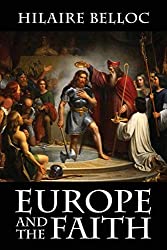
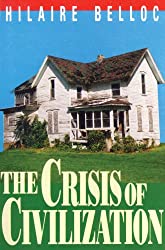
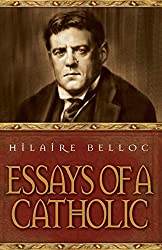
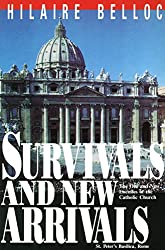
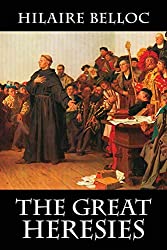
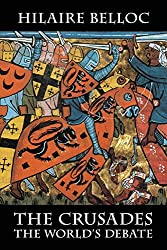
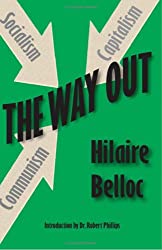
Comments
comments are currently closed
3 responses to “Belloc, Book and Candle”
Wonderful post. Many thanks for bringing to the readers.
Thank you, Roger. Its great to have you posting here again, and especially to know that more is coming!
Aged parent, Marcello, my warm thanks to you both – and for your blog link Aged Parent! What I saw I found meaningful indeed and hope to comment there.
I still need to find more time for that blog … and also to reply to others who have kindly left messages.
It’s taking me longer to get ‘back in the saddle’ of this blog than I thought, but it’s happening. A major piece on Belloc just went up and I will be replying to other folk soon.
Thanks for your patience.